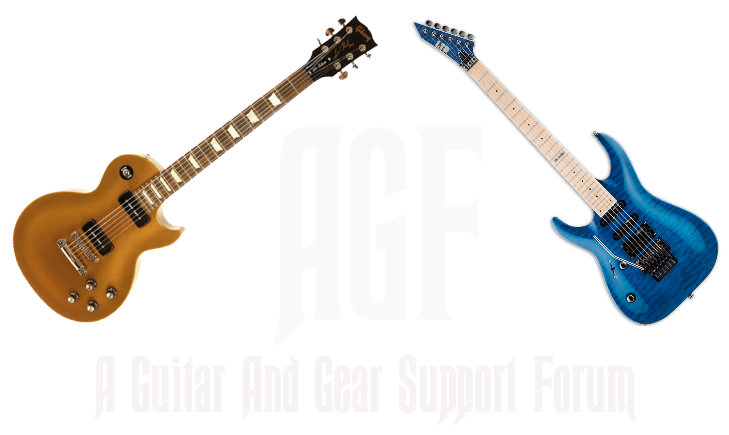To me, it's the same thing as the "thunk test," it gives a good indication as to if it will function well as a guitar or not in terms of sustain only, not necessarily tone.
*Thunk Test: noun
1. a procedure involving rapping a knuckle sharply on a chunk of wood, intended to establish the quality, performance, or reliability, especially before it is made into any number of useful objects such as a guitar.
"Billy Bob gave the block of wood the thunk test, and the wood made a ringing sound that you could hear as pure and sweet as the dew on a mountainside on a crisp spring morning. It was then he knew he would have a good day in the shed."
Solid body electrics - importance of UNPLUGGED tone
- Gear_Junky
- Reactions:
- Posts: 624
- Joined: Thu Aug 20, 2020 12:08 pm
Ha-ha, and even more so minor chords and 7ths and beyond. This reminded me of the following quote from Robert Fripp, I think I saw it in the book "Fretboard Logic":Chocol8 wrote: ↑Wed Sep 23, 2020 2:40 pm BTW, that video on harmonics is the music theory behind why with distorted tones (more harmonics from amps and pedals) we often drop the major third and prefer simple power chords. There are too many slightly out of tune harmonics with the full chords, and while many musicians might not understand what is going on, they do hear it, and naturally simplify what they are playing.
"With a note of music, one strikes the fundamental, and, in addition to the root note, other notes are generated: these are called the harmonic series...As one fundamental note contains within it other notes in the octave, two fundamentals produce a remarkable array of harmonics, and the number of possible combinations between all the notes increases phenomenally. With a triad, affairs stand a good chance of getting severely out of hand..."
Hmmm... so now only the top wood of an acoustic matters? Great, we're narrowing things down!mickey wrote: ↑Wed Sep 23, 2020 6:46 amHow about papier mache as a tonewood???Mossman wrote: ↑Tue Sep 22, 2020 8:55 pm This has been a trope for as long as there have been solid-body electric guitars, and I don't buy it. I don't believe in tonewood, either. I've picked up guitars/basses that sounded utterly unremarkable unplugged, but great when amplified, and vice verse. Intuitively it makes sense that the sound of an anamplified guitar would inform you of how it will sound plugged in, but all it tells you is how the guitar sounds unamplified. Since I've always practiced and performed with an amp, I don't care what a guitar sounds like unamplified.
Papier Mache Guitar
Except I already know that there's a marked difference between two guitars with the same top wood, but different backs and sides. As well as solid vs laminate (there once was a time when I didn't want to play an electric guitar
Finally escaping the People's Republic of Kalifornia!
BANNED BY MOMO
BANNED BY MOMO
Yep... Sounds like a Strat to me... I'll bet it's got great sustain, though.
Finally escaping the People's Republic of Kalifornia!
BANNED BY MOMO
BANNED BY MOMO
- Rollin Hand
- Reactions:
- Posts: 1433
- Joined: Wed May 27, 2020 1:38 pm
I generally agree with this idea, but there are always exceptions My RG350M sounds pretty dull unplugged, but rocks plugged in.
That is why I prefer to test before I buy. It's all alchemy with a lot of variables.
That is why I prefer to test before I buy. It's all alchemy with a lot of variables.
"I'm not a sore loser. It's just that I prefer to win, and when I don't, I get furious."
- Ron Swanson
- Ron Swanson
